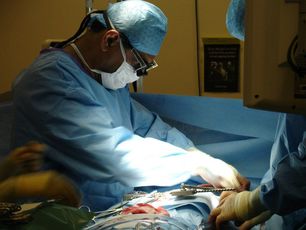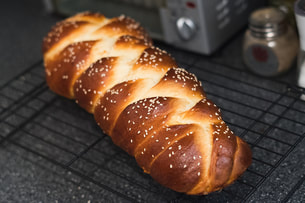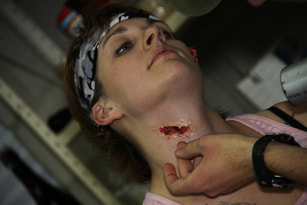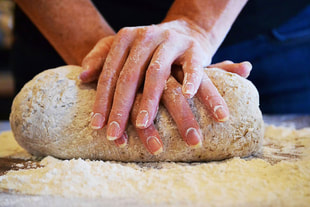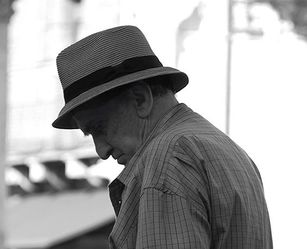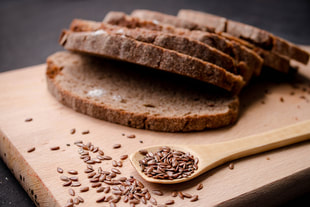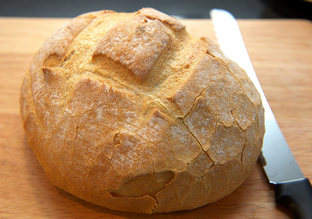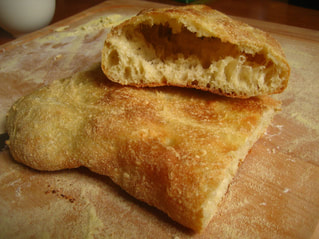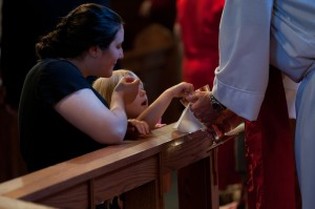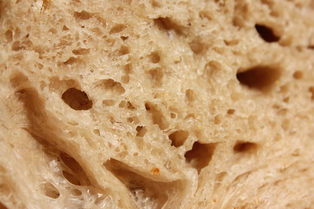"The Bread I Give is My Flesh"
Reflecting on Holy Communion
Rev. Teri Daily
(8-20-2018)
|
An article appeared in the online magazine Vox this week by Jackie Luo called “How to Make Friends as an Adult.”[1] I was immediately drawn to it. I suspect I’m not alone in finding it more difficult to make genuine, non-Facebook friends the older I get. Luo names what she considers to be the root cause of this difficulty: flakiness. Let’s face it, we all live incredibly busy lives, we are tired, and there is a smorgasbord of options and expectations to fill the one free night we have all week. Sometimes we have the best intentions of going to dinner with a friend, but fatigue overtakes us and we text a message to our friend saying, So sorry. I’m not going to be able to make it tonight after all. But let’s do catch up soon. There are many good reasons to cancel a planned dinner, and friendships can absorb an occasional cancellation. Still, here’s the thing: Friendships form and are strengthened when we show up for one another time and time again.
Not only do we all sometimes fail to show up for our friends, but we also fail to be present to our own lives. It is easy to live our lives one-step removed, to live them in our heads and not in our bodies. It happens on Facebook; our lives become a mental exercise in PR management instead of a series of lived experiences. It happens in the self-help aisle of the bookstore; we step back and look at ourselves not as a collection of connections and activities and longings, but as objects needing to be “fixed.” We lose sight what it means to be present to our bodies, present to our loved ones, present to our connections with the world around us – and, in the process, we lose part of our very selves. Perhaps a corrective to our lack of presence is what theologian Mayra Rivera would call “a theology of flesh.” So often we think of flesh as being the opposite of what is Holy. Flesh is a place of contact; it’s where we meet the world and one another in all of our materiality. But this doesn’t mean that flesh separates us from that which is spiritual. In fact, Mayra Rivera understands flesh to be the very place of spirit – the place of experiences that draw us into something greater than ourselves, the place of personal and political and ecological entanglements, the place of both tremendous possibilities and heart-breaking limitations.[2] Most of all, flesh – we are told by the evangelist John – is the place where we meet Jesus. In the very first chapter of John’s gospel we hear the cosmic affirmation that “the Word became flesh and dwelled among us” (John 1:14). And today’s gospel, taken from the bread of life discourse in the sixth chapter of John, is a passage full of claims about this flesh of Jesus:
The wonder is not that some who were with Jesus that day were shocked by these words. After all, these are graphic statements about flesh and blood – things my southern mother would say should not be mentioned at the table. No. The wonder is that we are not shocked by them. Such words have become commonplace to many of us. Every Sunday we come forward to receive the body and blood of Christ, “the food and drink of unending life in him.” We take the bread and the wine into our own bodies, and we become one with Christ. It is a beautiful image, a soothing feeling. We find here a sense of peace and the strength to rise above whatever comes our way. That is good and right. So often, though, that’s as far as it goes, and we end up living our life in the Body of Christ at a distance, one-step removed. But what if eating the flesh of Christ is not about finding a safe haven from a complicated world? What if it is, instead, about being fully present to the world – living life in our bodies and not just our minds, taking our place in the messy relationships that mark our lives in community, owning our complicity in global warming and the islands of plastic debris that land on foreign continents? What if it is not about some otherworldly, spiritual life in which we are untouched by the things of this world, but about a life in which we co-operate with the Holy Spirit to change this world? What if, when Jesus said, “those who eat my flesh abide in me, and I in them,” he was not just talking about taking bread into our bodies? (After all, Jesus never institutes the Lord’s supper in the gospel of John.) What if eating the flesh of Jesus is more about sharing in Jesus’ own experiences of the flesh? We find communion with Christ not just by taking the consecrated bread into our mouths and bodies, but by going where he went, doing the things he did, loving the people he loved in the way that he loved them, changing and being changed by the world around us, sharing in both the tears and the joy of life, finding beauty in the world with which God chose to join Godself. As Cynthia Bourgeault writes: “Thus [Jesus] came and thus he went, giving himself fully into life and death, losing himself, squandering himself, ‘gambling away every gift God bestows.’ It was not love stored up but love utterly poured out that opened the gates to the Kingdom of Heaven.”[3] We find communion with Christ when we live life freely, deeply, and abundantly. Contrary to what we often hear, becoming one with Christ doesn’t save us from the flesh; instead, communion with Christ drives us ever deeper into the experiences of this life and into relationships with the world around us. It prompts us to show up time and time again, knowing that this is where we find Jesus. The mystery of the world and of the altar rail is simply this: spirit and matter, God and creation, are absolutely compatible. It’s a two-fold mystery: the Word became flesh, and flesh was found capable of manifesting the Word. This second part is enough to make a piece of bread in our outstretched hands anything but mundane. CAPABLE FLESH The tender flesh itself will be found one day -- quite surprisingly -- to be capable of receiving, and yes, full capable of embracing the searing energies of God. Go figure. Fear not. For even at its beginning the humble clay received God’s art, whereby one part became the eye, another the ear, and yet another this impetuous hand. Therefore, the flesh is not to be excluded from the wisdom and the power that now and ever animates all things. His life-giving agency is made perfect, we are told, in weakness – made perfect in the flesh. St. Irenaeus (died c. 202) Adapted and translated by Scott Cairns[4] [1] Jackie Luo, “How to Make Friends in Adulthood,” Vox, August 16, 2018, https://www.vox.com/first-person/2018/8/16/17694356/how-to-make-friends-adulthood. [2] Jay McDaniel, “Down-to-Earth Theology: Learning from Mayra Rivera,” Open Horizons, http://www.openhorizons.org/down-to-earth-theology-learning-from-mayra-rivera.html. [3] Cynthia Bourgeault, The Wisdom Jesus: Transforming Heart and Mind—a New Perspective on Christ and His Message (Boston: Shambhala, 2008) 69-70. [4] As found in Barbara Brown Taylor, An Altar in the World: A Geography of Faith (New York: HarperOne, 2010). |
